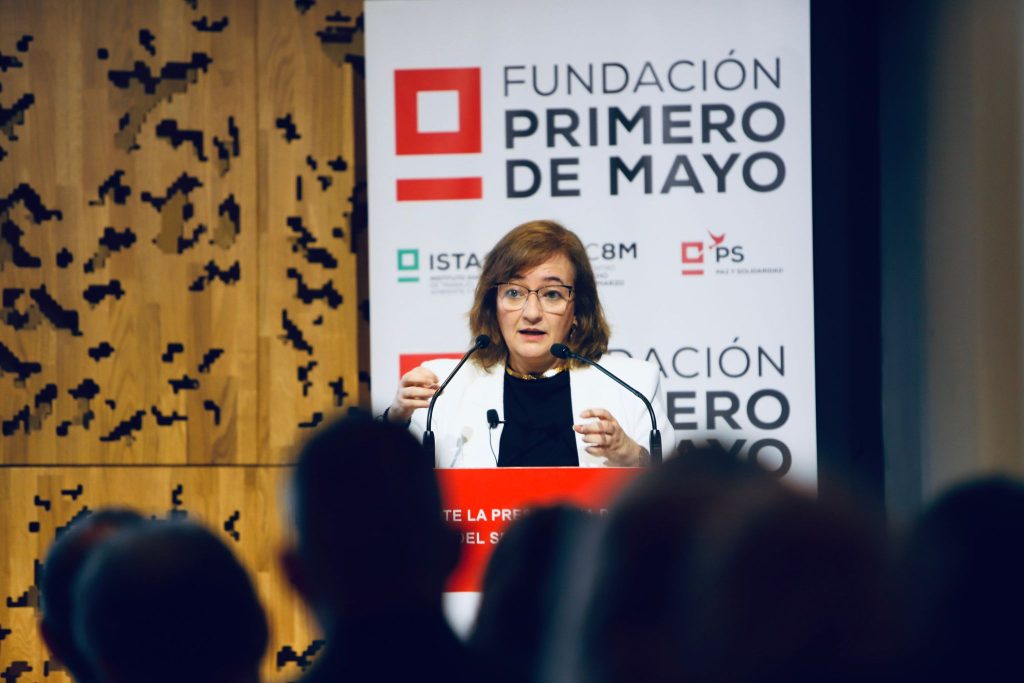
The president of the Independent Authority for Fiscal Responsibility (AIReF), Cristina Herrero, today gave a lecture at the conference on European and Spanish taxation organised by the First of May Foundation of Comisiones Obreras, in which she highlighted the importance of the quality of public finances as a key tool for sustainability.
Cristina Herrero began her speech by referring to the proposed reform of the European fiscal framework, which places growth and sustainability at the centre of the new governance model. In her opinion, the review of the European framework is an opportunity for change, to promote a comprehensive national reform with the commitment and participation of all public administrations.
In this respect, she pointed out the importance of the new governments that are being formed after the regional and local elections and the one that emerges from the polls on 23 July defining real medium-term fiscal plans that become commitments for the legislature. In her opinion, a country-wide agreement is needed, capable of generating broad consensus and ensuring coordination between the different levels of government.
According to the President, the reform of the governance model at the national level must be carried out from a comprehensive approach that addresses not only the fiscal framework, but also the regional and local financing system, existing debt imbalances and the weaknesses identified in the budgetary procedure. All of this must be done ensuring consistency with the European framework and national rules, with a medium-term vision and considering the growth and quality of public finances.
Regarding the medium-term vision, Cristina Herrero insisted that the definition of a true forward-looking fiscal strategy is already an unavoidable task, as the new European framework will require. Moreover, its translation to the national level raises open questions that will have to be resolved, some of them already in the short term, such as the rules to be applied with the end of the escape clause and until the new European framework is approved, or the system for distributing the deficit targets.
On the other hand, the commitment to quality public finances will be key to this strategy. Although progress has been made in promoting the evaluation of public policies in Spain, there is still some way to go to consolidate evaluation at national level and in AIReF itself. Specifically, Cristina Herrero referred to several challenges that AIReF will have to face, such as the need to: maintain the quantitative and qualitative relevance of the evaluations, strengthen the monitoring of the results achieved and improve access to the information needed to carry out this work, among others.
Regulatory changes
Finally, she pointed out that in order to consolidate AIReF’s evaluation function it will be necessary to take into account possible regulatory changes that address aspects such as the proper management of the commissioning portfolio and the provision of sufficient resources. Specifically, it is necessary to improve the commissioning process and AIReF’s involvement in the selection of policies to be evaluated, as well as to study the possibility of the institution having its own initiative to give continuity, stability and predictability to the evaluations. It is also crucial to have an adequate allocation of financial resources, with the possibility of providing stability via the supervision fee, and a greater allocation of human resources, with more flexibility to hire multidisciplinary profiles.
As the president recalled, the growing assignment to AIReF by law of permanent evaluation obligations, such as the Minimum Living Income or the pension spending rule, makes it even more necessary to have adequate planning and resources to consolidate the institution’s evaluation function.






